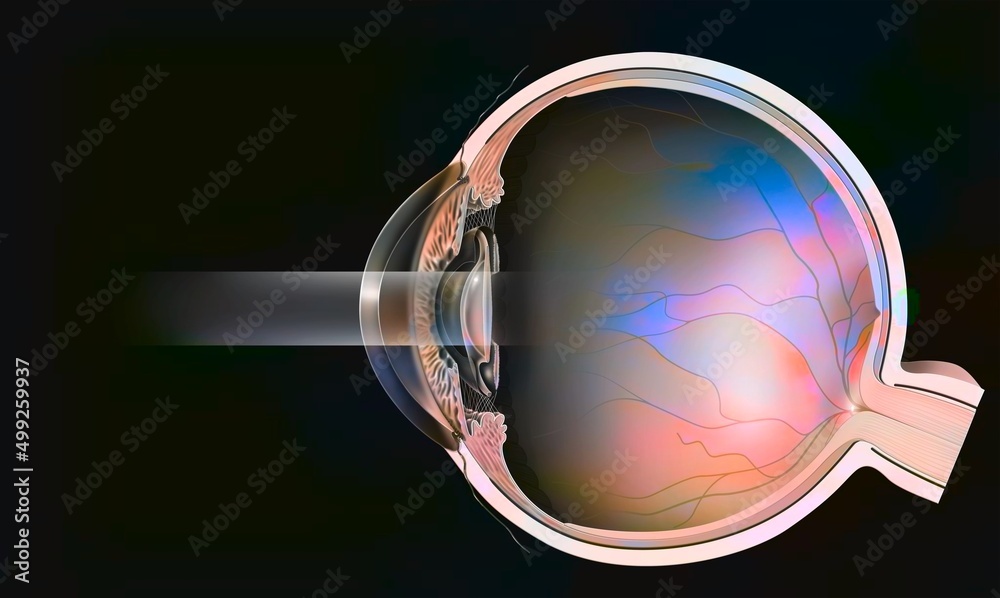June is Cataract Awareness Month, highlighting a condition that affects over 2.5 million Nigerians and remains the leading cause of reversible blindness in our country. At Megavision Eye Clinic, our cataract specialists perform advanced surgical procedures using the latest techniques at our flagship Ikeja location, helping patients regain clear vision and independence.
Cataract Facts: Understanding Nigeria’s Biggest Vision Threat
Cataracts develop earlier and progress faster in Nigeria due to intense UV exposure and other factors. Book your cataract evaluation today by calling 08025314335 to determine if you’re ready for life-changing surgery.
Why Cataracts Are More Common in Nigeria
Several factors contribute to higher cataract rates:
- Intense equatorial UV radiation accelerating lens protein breakdown
- Higher prevalence of diabetes causing metabolic cataracts
- Nutritional deficiencies in some populations
- Genetic predisposition in West African populations
- Limited access to early detection and treatment
Signs Your Cataracts Need Surgical Intervention
Many people live with cataracts longer than necessary. Seek evaluation if you experience:
- Difficulty driving at night due to glare from headlights
- Frequent prescription changes that don’t improve vision
- Colors appearing faded or yellowed
- Double vision in one eye
- Difficulty reading despite good lighting
- Halos around lights causing visual discomfort
Advanced Cataract Surgery Solutions at Megavision
1. Comprehensive Pre-Surgical Evaluation
Our thorough assessment includes:
- Detailed measurement of your eye’s dimensions for precise lens selection
- Assessment of overall eye health and other conditions
- Discussion of lifestyle needs and visual goals
- Advanced diagnostic testing to plan optimal surgery
- Medical clearance coordination with your primary physician
Ensure optimal surgical outcomes with comprehensive pre-operative planning. Schedule your cataract evaluation by calling 08021140307 today.
2. State-of-the-Art Surgical Techniques
We offer the latest surgical approaches:
- Phacoemulsification (ultrasonic cataract removal) for faster healing
- Micro-incision surgery reducing post-operative complications
- Femtosecond laser-assisted surgery for enhanced precision
- Advanced intraocular lens options for various visual needs
- Same-day bilateral surgery when appropriate
3. Premium Intraocular Lens Options
Choose from advanced lens technologies:
- Monofocal lenses for clear distance vision
- Multifocal lenses providing vision at multiple distances
- Toric lenses correcting astigmatism during cataract surgery
- Extended depth of focus lenses for enhanced intermediate vision
- Light-filtering lenses protecting against blue light and UV
Discover which premium lens option best suits your lifestyle. Schedule your lens selection consultation by calling 07042968643 today.
Understanding Different Types of Cataracts
Age-Related Cataracts: The Most Common Type
Most cataracts develop gradually with age:
- Nuclear cataracts affecting the lens center, causing nearsightedness initially
- Cortical cataracts developing around the lens edges, causing glare
- Posterior subcapsular cataracts forming at the back, affecting reading vision
- Mixed cataracts combining multiple types
Secondary Cataracts: Caused by Other Conditions
These cataracts result from:
- Diabetes (developing 5-10 years earlier than age-related cataracts)
- Prolonged steroid use for medical conditions
- Previous eye injuries or surgeries
- Inflammatory eye diseases
- Radiation exposure
Congenital Cataracts: Present from Birth
Though rare, congenital cataracts require immediate attention:
- Can be present at birth or develop in early childhood
- May affect visual development if not treated promptly
- Require specialized pediatric surgical techniques
- Often need immediate intervention to prevent amblyopia
- May require ongoing visual rehabilitation
Concerned about pediatric cataracts? Book your child’s evaluation by calling 08021140307 now.
Cataract Surgery: What to Expect
Pre-Operative Preparation
Before your surgery:
- Complete medical evaluation and clearance
- Detailed measurements for intraocular lens selection
- Discussion of anesthesia options (typically local anesthesia)
- Pre-operative instructions including medication adjustments
- Arrangement for post-operative transportation
The Surgical Experience
Modern cataract surgery typically involves:
- Outpatient procedure lasting 15-30 minutes
- Local anesthesia with mild sedation for comfort
- Micro-incision technique requiring no stitches
- Immediate intraocular lens implantation
- Same-day discharge with protective eye shield
Post-Operative Recovery and Care
Recovery involves:
- Immediate vision improvement (often within hours)
- Prescription eye drops to prevent infection and inflammation
- Gradual return to normal activities over 1-2 weeks
- Follow-up appointments to monitor healing
- Final prescription for any remaining refractive error
Advanced Lens Options for Enhanced Vision
Multifocal Intraocular Lenses
These premium lenses provide:
- Clear vision at distance, intermediate, and near ranges
- Reduced dependence on reading glasses
- Enhanced quality of life for active individuals
- Advanced optical designs minimizing side effects
- Satisfaction rates exceeding 95% in appropriate candidates
Toric Intraocular Lenses for Astigmatism
For patients with astigmatism:
- Simultaneous correction of cataracts and astigmatism
- Reduced need for glasses after surgery
- Precise axis alignment for optimal vision correction
- Stable long-term outcomes
- Significant improvement in visual quality
When to Consider Cataract Surgery
Quality of Life Indicators
Consider surgery when cataracts affect:
- Your ability to perform work-related tasks
- Safe driving, especially at night
- Reading and other close-up activities
- Enjoyment of hobbies and recreational activities
- Independence in daily activities
Medical Indications for Surgery
Sometimes surgery is necessary for:
- Diabetic retinopathy monitoring (cataract blocks view of retina)
- Glaucoma management (cataract interferes with pressure monitoring)
- Lens-induced inflammation or pressure elevation
- Traumatic cataracts causing pain or vision loss
- Preventing complications from overripe cataracts
Cataracts don’t have to limit your vision or quality of life. With modern surgical techniques and premium lens options, cataract surgery can actually improve your vision beyond what glasses or contacts ever provided. Book your comprehensive cataract evaluation at Megavision Eye Clinic today by calling 08025314335.
Clear vision is waiting—take the first step toward visual freedom.

